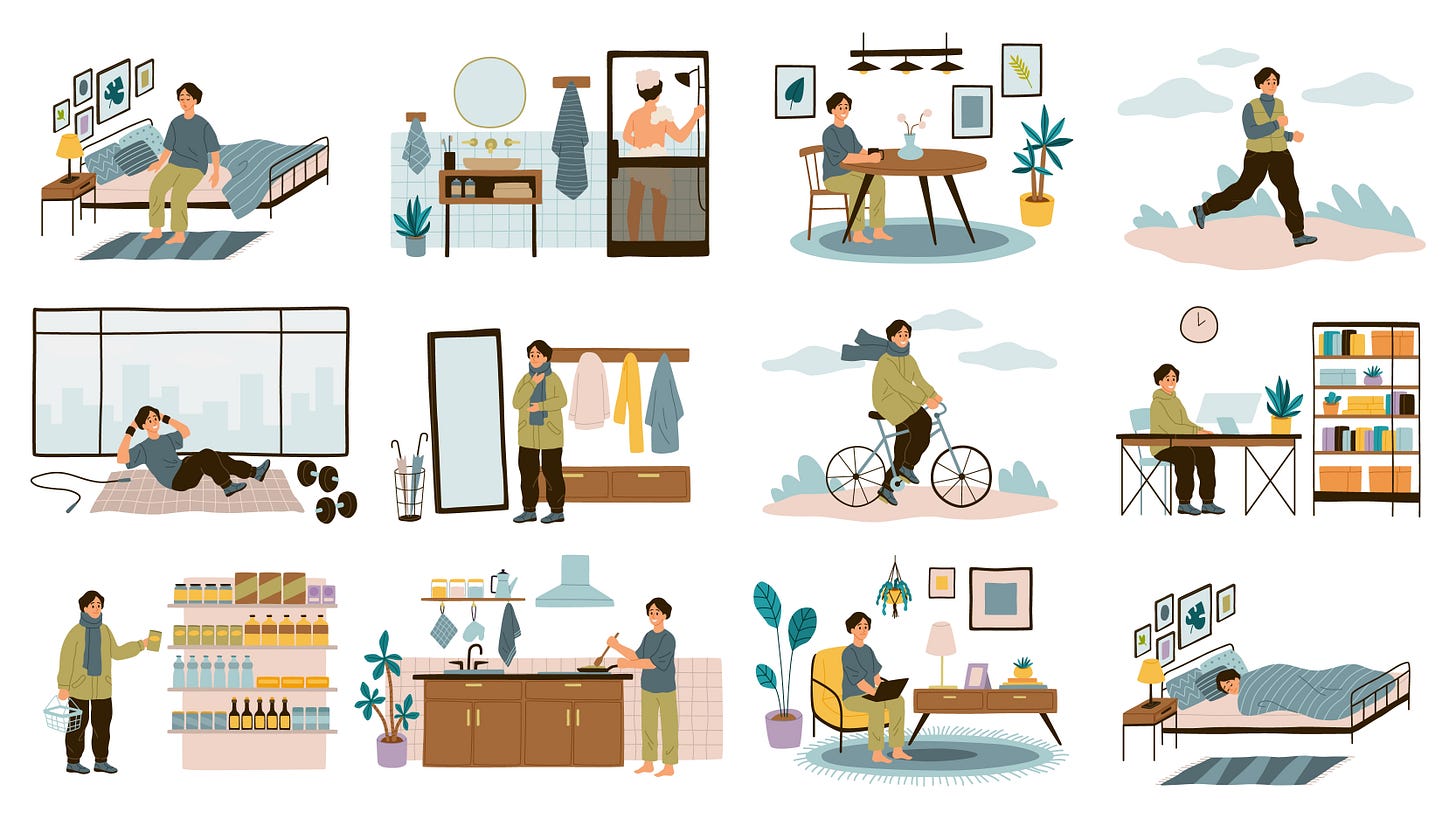Research Hit: Your Brain Creates Meaningful Chapters Throughout the Day
How your brain splits up your day depends on meaning and attention
What do you mean that our brain creates “chapters”?
Well, we sequence our day through different blocks, that we form for ourselves. For example we may have breakfast time with family, work time, lunch with friends, important afternoon meeting, commute home, and evening sports. These are saved in our memory as distinct blocks.
That makes sense - and what is new here?
Alexandra De Soares et al. of Columbia University explored this further by manipulating attention to events given in short video sequences to see if this concept of blocking, or creating chapters, could be manipulated.
For example, in my above outline the different locations are obviously important. But is this really how the brain splits up events? What happens if you have a business meeting but then go to lunch to keep discussing? You have changed the location but the discussion is still on business - is this then one “chapter” or two?
And what did they find then?
Well, the most interesting bit is that this is more active than we previously thought. Previously we thought that this was primarily driven by these external cues. However, the researchers could change that by getting participants to focus on different details. For example, in one example video it follows a marriage proposal scene.
They found that most people went along with the story while pre-empting the next stages (our brain is a predictive machine after all). Quite logical - but by shifting focus by simply asking participants to focus on what the pair ordered for their meals changed how they structured the interaction in their minds: such as before main course and after main course.
And what does this show?
This shows that prefrontal activation changes how we form chapters. In our everyday lives though it will be where our attention is. This can be random, of course, but more often than not our attention is driven by salience, i.e. what is important to us. This means we create chapters on what is more important for us. A workday may be one chapter or it could be split up into meaningful activities, or key meetings, depending on what is currently important to us.
And how we split these up in our minds will show us what is important to us also?!
Yes, indeed! Our chapters show our emotional attention.
Reference
Alexandra De Soares, Tony Kim, Franck Mugisho, Elen Zhu, Allison Lin, Chen Zheng, Christopher Baldassano.
Top-down attention shifts behavioral and neural event boundaries in narratives with overlapping event scripts.
Current Biology, 2024
DOI: 10.1016/j.cub.2024.09.013




